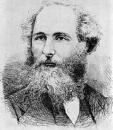| |

Home
Contact Info
Course Info
Calendar
Homework
Lecture Notes
|
|
|
|
PHY 218: Electricity and Magnetism II
Prof. S. Teitel stte@pas.rochester.edu ---- Spring 2019
Lecture Notes
My hand written class lecture notes are being scanned and uploaded for you to view. Please be warned that these are the notes I prepare for myself to lecture from - they are not in general carefully prepared for others to read. I make no guarantees about their legibility, or that they are totally free of errors. I hope, nevertheless that you will find them useful. The lectures are uploaded as pdf files, so you will need Adobe Acrobat Reader in order to read them. You can download Acrobat Reader for free here.
The lecture note files correspond roughly to the material presented in a given day's lecture. But you may on occassion find the end of one day's lecture at the start of the file for the next day's lecture, so please look there if you think there might be something missing.
- Lecture 0 - A brief history of electromagnetism
- Lecture 1 - Review of electro- and magneto- statics, electrostatic and magnetostatic potentials, electromagnetic induction and Faraday's Law, energy stored in an electrostatic configuration of charges
- Lecture 2 - Review of mutual and self inductance, energy stored in a magnetostatic current configuration
- Lecture 3 - Maxwell's correction to Ampere's Law, conservation of energy in presence of electromagnetic fields, electromagnetic energy density and electromagnetic energy current (Poynting vector)
- Lecture 4 - Conservation of momentum, Maxwell stress tensor, electromagnetic momentum density and angular momentum density, magnetic monopoles and Dirac's argument for the quantization of charge
- Lecture 5 - Maxwell's equations in potential form, gauge transformations, Coulomb gauge, Lorentz gauge, Lorentz force in potential form
- Lecture 6 - Lagrangian and canonical momentum of a charge in electromagnetic fields, electromagnetic waves in a vacuum, solutions to the wave equation, plane waves, spherical waves, simple harmonic wave, Fourier transforms
- Lecture 7 -General solution to the homogeneous wave equation, Green's function for the inhomogeneous wave equation, longitudinal, transverse, and circular polarization, electromagnetic waves in a vacuum
- Lecture 8 - Energy and momentum of EM waves in a vacuum, bound current from time varying polarization density, Macroscopic Maxwell's equations in matter, wave in a linear material with constant permeability and permeativity
Supplemental Notes - Magnetic Materials
- Lecture 9 - Frequency dependent polarizability, electric susceptibility and permittivity, non-local in time relation between displacement field D and electric field E, dispersion relation for waves in a dielectric
- Lecture 10 - Effects of permittivity ε(ω) being complex and frequency dependent, phase velocity, group velocity, normal and anomalous dispersion, wave pulse spreading
- Lecture 11 - Real and imaginary parts of the permittivity, real and imaginary parts of the wavenumber, regions of transparent propagation, resonant absorption, and total reflection
- Lecture 12 - Waves in a conductor, free current density and free charge density, frequency dependent conductivity, dispersion relation, good and poor conductors, skin depth, plasma frequency
- Lecture 13 - Longitudinal modes in a conductor, plasma oscillations, reflection and transmission of waves at an interface, Snell's law, critical angle, total internal reflection
- Lecture 14 - Corrections to Snell's law for a dissipative medium, transmission into a highly absorptive medium, reflected and transmitted field amplitudes, coefficient of reflection, region of total reflection
- Lecture 15 - Reflection between two transparent media, Brewster's angle, Green's function for the wave equation
- Lecture 16 - Radiation from a localized oscillating charge density, expansion for the vector potential, electric dipole, magnetic dipole and electric quadrupole terms for radiation
- Lecture 17 - Review: the multipole expansion in electrostatics and magnetostatics, electric and magnetic dipoles, electric quadrupole, dipole fields, magnetic dipole moment for a planar current loop
- Lecture 18 - Relative sizes of dipole and quadrapole terms, electric and magnetic fields in the electric dipole approximation, radiation zone limit, Poynting vector and radiated power in the electric dipole approximation
Supplement - Computing the Greens function for the wave equation in real space-time
- Lecture 19 - Why is the sky blue, magnetic dipole radiation
- Lecture 20 - Radiation from an arbitrary time-dependent charge distribution, Larmor's formula for the radiated power of an accelerated charge, radiation-reaction force, radiative decay of a classical atom
Supplement - The Abraham-Lorentz Equation - we did not cover this in lecture, and you're not responsible for it, but it is interesting so here it is!
- Lecture 21 - Lienard-Wiechert potentials for a moving point charge, potentials and fields for a point charge moving with constant velocity, and for a charge accelerating
- Lecture 22 - Some comments on the electric quadrupole moment, special relativity, Lorentz transformation, time dilation, FitzGerald contraction, proper time, proper length
- Lecture 23 - Simultaneity of events, 4-vectors, Lorentz transformation matrix, 4-differential, proper time interval, 4-velocity, 4-acceleration
- Lecture 24 - 4-gradient, wave equation operator, 4-current, 4-potential, the field strength tensor Fμν, transformation law for E and B fields
- Lecture 25 - Maxwell's equations in relativistic form, energy-momentum 4-vector, Minkowski force, relativisitc kinetic energy
- Lecture 26 - Conservation of energy and momentum, the Lorentz force in relativistic form, the relativisitic generalization of Larmor's formula
- Lecture 27 - 4-acceleration, Lienard-Wiechert potentials in relativistic form, field strength tensor and E and B fields for a charged particle moving on an abritrary trajectory
- Lecture 28 - Angular distribution of radiated power from an accelerating charge, non-relativistic limit, relativistic limit, linear motion, circular motion
|
|